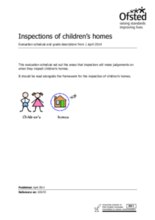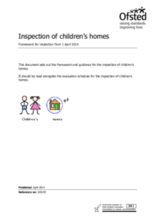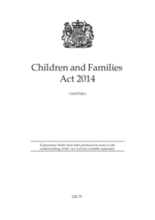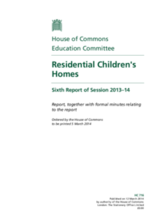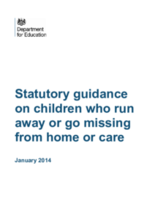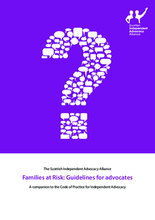Displaying 1081 - 1090 of 1177
This article highlights the impact three recent television documentaries on British television have had on public awareness and understanding of foster care and adoption processes.
This article highlights the impact of three recent television documentaries on British television have had on public awareness and understanding of foster care and adoption processes.
This article highlights the impact three recent television documentaries on British television have had on public awareness and understanding of foster care and adoption processes.
This evaluation schedule set out the areas that inspectors will make judgements on when they inspect children’s homes in the UK. It should be read alongside the framework for the inspection of children’s homes.
This document sets out the framework and guidance for the inspection of children’s homes in the UK. It should be read alongside the evaluation schedule for the inspection of children’s homes.
An Act in the United Kingdom to make provision about children, families,and people with special educational needs or disabilities; to make provision about the right to request flexible working; and for connected purposes.
In this review, the authors highlight evidence drawn from research in Australia, the United Kingdom, Canada, Ireland, and the United States, on the impact of growing up in care beyond the early twenties.
This report examines the proposed reforms for the regulation of children’s residential care in England.
This guidance from the UK Department for Education sets out the steps local authorities and their partners should take to prevent children from going missing and to protect them when they do go missing.
This document has been produced to provide guidance for advocacy organisations and advocates delivering independent advocacy to families at risk.

